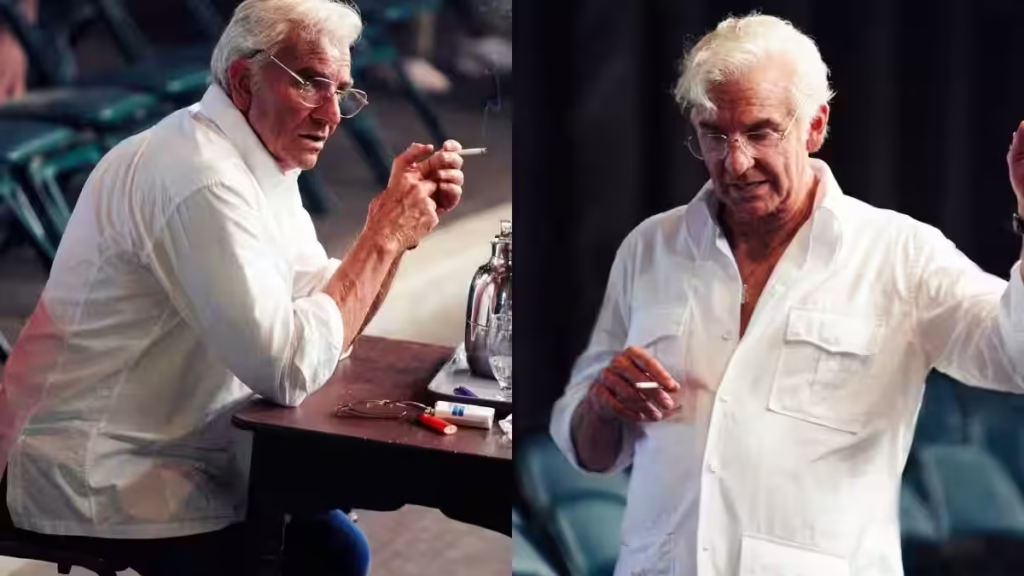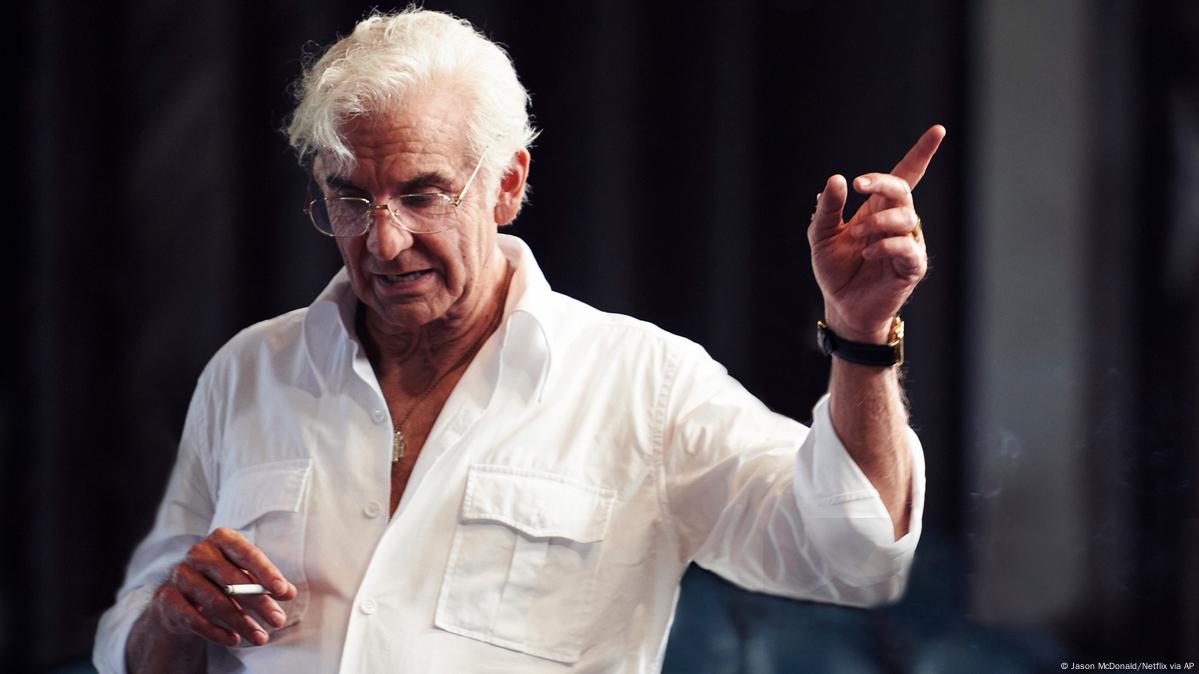Leonard Bernstein: The Maestro Who Changed American Music Forever
Do you wonder about the person behind one of the most popular musicals West Side Story? Leonard Bernstein was not only a composer. He was a teacher, conductor, pianist, and one of the most outstanding musical brains of 20 the century. He was a pioneer of American music that was possible due to his unique talent to combine classical traditions with jazz, Broadway, and popular culture.
This article will be filled with uplifting descriptions of the life and work of Bernstein, all the way to his humble roots and his subsequent garnering high standings all over the world. Being a professional classics fan or even an amateur in the world of music history, now you can learn how Leonard Bernstein made music history with the help of a simple to read and simple informatory guide presented here..
Table of Contents
Leonard Bernstein Biography: A Musical Chorus Started
Leonard Bernstein’s biography is initiated by the fact that he was born in Lawrence, Massachusetts, on August 25, 1918. Young Bernstein was a son of Ukrainian immigrant Jews who demonstrated musical abilities at a young age. At the age of 10, when a piano showed up in his house, it gave rise to the passion which would never leave him. He was able to learn classical tunes in record time and he was also fond of jazz mixing genres even at an early age.
Bernstein studied at Harvard University and his major was music theory and composition. Later on, he joined the famous Curtis Institute of Music in Philadelphia where he honed skills in conducting and piano. His success was in 1943 when, aged 25 years, he had been substituted at the last-minute to conduct the New York Philharmonic. It was also a live broadcast on the national radio where his legendary career was made.
Leonard Bernstein Conducts The Dynamic Maestro
Bernstein was the history maker because he was the first conductor to conduct a major orchestra as an American born. In 1958 he became the Music Director of New York Philharmonic, where he worked through 1969. He also performed more concerts than any of his predecessors in his time and was later on appointed Laureate Conductor.
Well known by his explosive temperament and extravagant gestures, Leonard Bernstein conducting style was electrified. He introduced a new vitality to classical staples and received accolades in his accounts of Mahler, Beethoven and Copland. He attracted new audiences to classical music due to his zeal and charm.
He reached millions using the media as well. The feeling of making complicated music simply guided by his televised performances changed the way Americans perceived orchestral music.
Leonard Bernstein compositions: the gap between classical and popular music
Bernstein was a churning composer. His compositions consisted of symphonies, operas, ballet, musicals and choral music. Leonard Bernstein West Side Story was his most recognizing production and it was first brought to stage in 1957 and transformed musical theater forever. It merged jazz, Latin rhythms and classical harmony and addressed social concerns of race and violence in such a manner that no musical had, up to this time.
Other big Leonard Bernstein works are:
Symphony No. 1 “Jeremiah” (1942) – the composition made on biblical motifs.
Symphony No. 2 The Age of Anxiety (1949) a work based on the poem by W.H. Auden.
Symphony No. 3 Kaddish (1963) – a very personal work, a tribute being made out of prayers in the Jewish faith.
Leonard Bernstein Mass (1971) dramatic mix of classical, jazz and rock.
Leonard Bernstein Candide (1956) A clever operetta with a great orchestration.
Leonard Bernstein Chichester Psalms (1965) texted in Hebrew.
Leonard Bernstein Scherzo that reveals his rhythmic vibrancy and orchestration effects.
He blended styles and so his music became a very American and popular one.
Leonard Bernstein Young People’s Concerts: Teaching the New generation
In 1958 Bernstein introduced the televised Leonard Bernstein Young People’s Concerts with the New York Philharmonic. These programs were family friendly, child focused, and entertaining. Bernstein could discuss musical terms and concepts using his ingratiating personality and chatty tone of voice that could be understood by everybody.
Such concerts became a legend of culture, as they made classical music something understandable and thrilling to the young generations. Music teachers and promoters to date consider them life changing programs.
Orchestra concerts and Leonard Bernstein Records
The recordings of Leonard Bernstein encompass more than 500 sessions in everything to do with Mozart, to the modern day American composers. His entire recording of Mahler symphonies with the New York Philharmonic is legendary, deeply moving and accurate.
He was also an international conductor, working with the best orchestras in the world such as Vienna Philharmonic, Boston Symphony, and the London Symphony Orchestra. Leonard Bernstein orchestra concerts could be called unforgettable as he used to be emotional and a genius on interpretation.
Leonard Bernstein Harvard and Curtis Institute Education
His education was foundational to his success. At Leonard Bernstein Harvard, he studied under musicologist Walter Piston and explored a wide range of academic interests including philosophy and literature. This broad education influenced his interdisciplinary approach to music.
At the Leonard Bernstein Curtis Institute, he trained under legendary teachers like Fritz Reiner (conducting) and Isabelle Vengerova (piano). This rigorous training helped him become a master of both technique and expression.
Leonard Bernstein Pianists / and Collaborations
Bernstein was an outstanding pianist. He also usually played and conducted on the piano, displaying his power to multitask at the utmost artistic capacity. He was regarded by many other fellow musicians as a generous collaborator.
He collaborated with musicians like violinist Isaac Stern, soprano Christa Ludwig and cellist Mstislav Rostropovich. Such partnerships enhanced classical music in America and brought it to higher status on the world music map.
Awards and Honors Leonard Bernstein Leonard Bernstein awards and honors
During his life, Bernstein received quite a number of accolades that indicate his influence:
One Lifetime Achievement Award and 16 Grammy Awards
7 Emmy TV awards on television programming
2 Tony Awards
Award of the Kennedy Center Honor (1981)
Academy Award nomination of On the Waterfront
These awards highlight how brilliant this music composer and conductor is, besides being an educator and a media personality.
Leonard Bernstein in Education Harvard and Curtis Institute
He succeeded in his education. He attended Leonard Bernstein Harvard, where musicologist Walter Piston was his teacher and attended all subjects of studies including philosophy and literature. This overall training influences his interdisciplinary attitude in doing the work in music.
Such legendary teachers as Fritz Reiner (conducting) and Isabelle Vengerova (piano) at the Leonard Bernstein Curtis Institute educated him. This was hard training which enabled him to be master of the technique and the expression.
The Legacy of Leonard Bernstein: The Mass, Candide and ChiChester Psalms
His broad scope and strong devotion to featuring spiritual and social topics are prey in his writings such as Leonard Bernstein Mass, Leonard Bernstein Candide, and Leonard Bernstein Chichester Psalms by Bernstein.
- Mass was ordered to be performed at an opening of the Kennedy Center and is indicative of a post-Vietnam American culture mood.
- Candide is praised for its musical genius and wit.
- Chichester Psalms combines Hebrew sacred text and contemporary harmonies, a very unusual homage to Jewish heritage.
All the compositions reveal his unique talent to unite music with the human experience.

Leonard Bernstein Scherzo and other Orchestral Works
Leonard Bernstein Scherzo is among the lesser known gems of Bernstein in which he showed his rhythmic sportiveness and clarity of structure. These compositions are not so well known as his musicals, but demonstrate his mastery of orchestral arrangement and imaginative thinking.
In his experimentation with form, tone and instrumentation, he continues to have a bearing on the composers of today. These are orchestral pieces that are studied and also performed in as many conservatories and concert halls all over the world.
Conclusion
The contribution that Leonard Bernstein made to American music can not be overestimated. He opened the door between concert halls and the real world, on the one hand, West Side Story and, on the other, teaching music on television. His conducting, composing and teaching is still a great source of inspiration to musicians and music lovers the world over. In his recordings; in his concerts; in his irresistible smile in front of the camera; however, in whatever manner, Bernstein in his endless legacy is brilliant, bold and splendidly American.
Meta description:
Get to know the life of Leonard Bernstein, the legendary American composer of the West Side Story and the father of music education and innovation.




